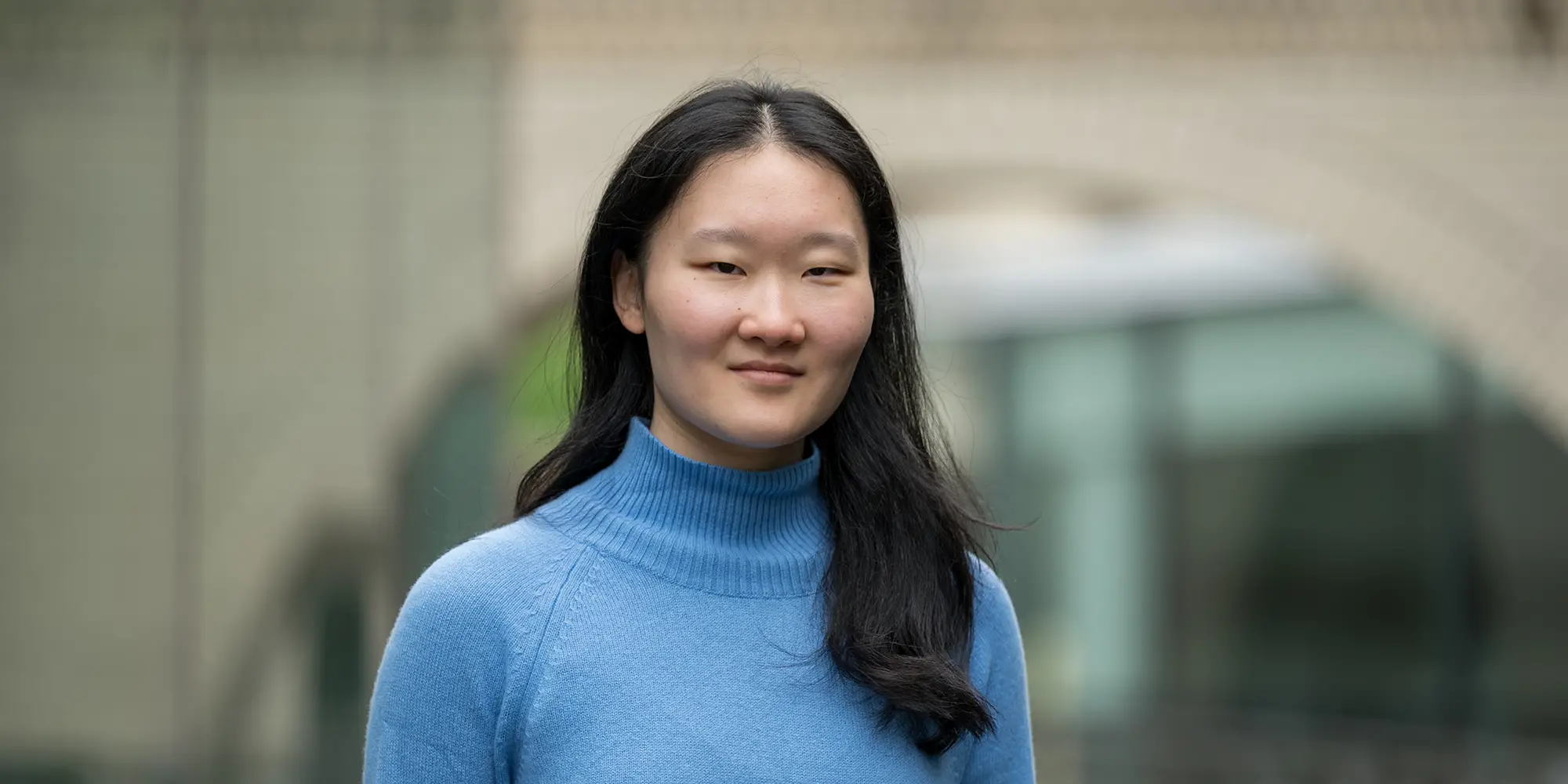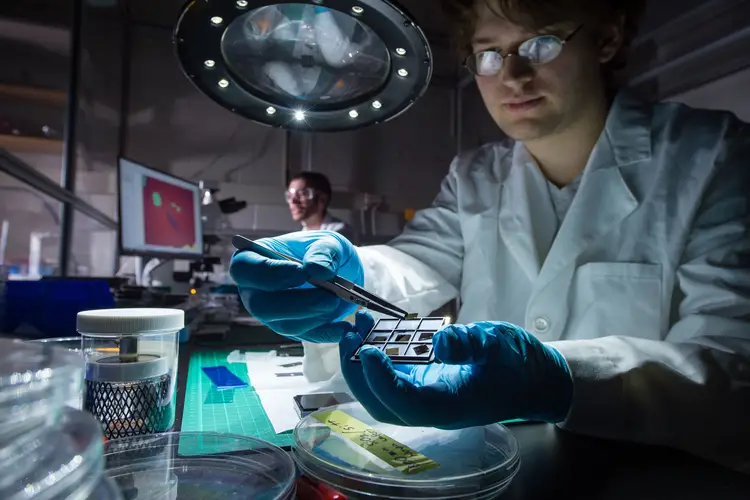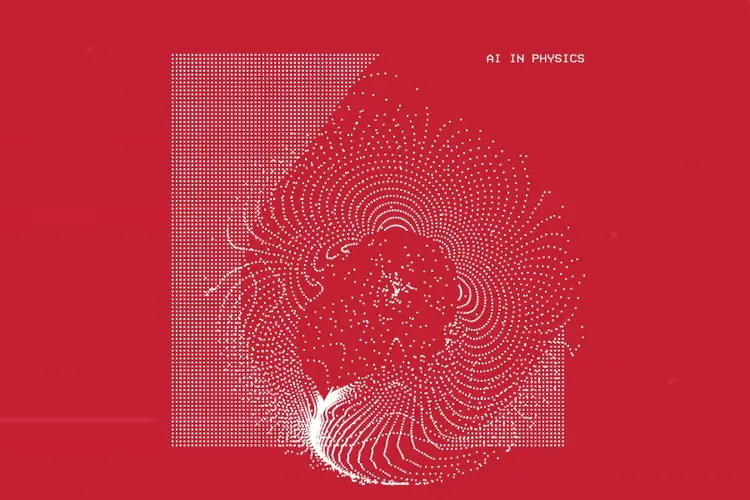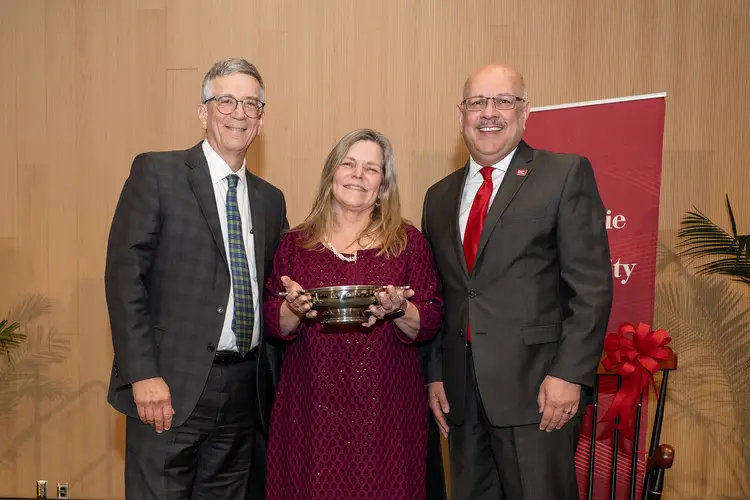
Physics Powers Li’s Neuroscience Discoveries
Media Inquiries
Physics underpins how the universe works. For recent Carnegie Mellon University graduate and future physician-scientist Yunshu Li, it’s a gateway to breakthroughs in medicine and neuroscience.
“A background in physics provides anyone who’s majoring in physics with a lot of quantitative and critical thinking skills applicable to all sorts of different fields, including neuroscience research,” said Li, who graduated with a major in physics and minors in chemistry and neural computation. She also participated in the university’s Health Professions Program(opens in new window), which advises students interested in pursuing a career in the health professions. “My interest in research initially stemmed from wanting to take things I was learning in the classroom and being able to apply them to real-world questions.”
Li started research by working with Stephanie Tristram Nagle, research professor emerita of physics, on novel antibiotic treatments for multi-drug resistant bacteria in her biophysics lab. As a junior, she joined the Lab in Multisensory Neuroscience(opens in new window) headed by Barbara Shinn-Cunningham(opens in new window), Glenn de Vries Dean of the Mellon College of Science.
In Shinn-Cunningham’s lab, Li worked to understand how the brain processes multiple sounds and then focuses on one sound in particular, like picking out a conversation with a friend in a loud, crowded party. She and other researchers use neural imaging techniques to see which systems in the brain are activated as people focus on a specific sound in a larger soundscape.
“It’s very meaningful for me to think about how these questions not only help to deepen our understanding of perception but also have the potential to inform the development of assistive hearing devices and other technologies to aid listeners with hearing impairments or other communication disorders,” Li said. “One of the things I love most about neuroscience research is how incredibly interdisciplinary it is.”
Outside of the lab, Li volunteers at UPMC Shadyside. The program she has worked with for the past two years connects volunteers with elderly patients to prevent hospital-acquired delirium. By interacting with young volunteers, patients keep their minds sharp, assisting with the healing process.
“It’s a role that teaches you how to care for others during some of their most vulnerable times,” Li said. “It’s been one of the most formative experiences of my undergraduate career.”
For her efforts, Li earned the Dr. J. Paul Fugassi and Linda Monteverde Award(opens in new window), which is given each year to a graduating female senior in the Mellon College of Science who demonstrates the greatest academic achievement and professional promise. She won a 2024 Barry Goldwater scholarship and the Department of Physics’ inaugural Robert W. Kraemer Award(opens in new window), which supports an early-career research opportunity for a first-year Carnegie Mellon undergraduate student who has declared a major in physics.
“Yunshu is one of the most brilliant and dedicated students I have had the pleasure of working with over the course of the past three decades,” Shinn-Cunningham said. “I cannot wait to see what she does next!"
Li will attend Duke University in the fall as she pursues an M.D.-Ph.D. She said that the experiences she had at Carnegie Mellon have prepared her well for her future as a physician and a scientist.
“I’ve had the opportunity to grow scientifically, professionally and personally during my time in the lab,” Li said.


